Shockingly, highly critical and judgmental behavior often masks deeper struggles with anxiety, insecurity, jealousy, and mental health challenges. But gathering up the strength to notice and fix what’s broken on the inside takes a lot of courage.
Emotional support animals (ESAs) and therapy dogs provide help during the stressful and troublesome phase of human lives. They can give comfort, companionship, and therapeutic benefits for individuals facing mental health challenges and even help individuals overcome panic attacks.
Each breed of dog comes with different personality traits, which affect their suitability for emotional support roles. But choosing the right emotional support dog breed depends on matching the dog’s temperament and energy level with the owner’s lifestyle and emotional needs.
Best Emotional Support Dog Breeds For Therapy
Let’s explore these suitable breeds for mental disabilities that provide support and therapy sessions that work like magic.
1. Golden Retriever
Height: 21.5-24 inches | Weight: 55-75 lbs
Lifespan: 10-12 years
Temperament: Exuberant, Affectionate, Gentle, People-Oriented, Intelligent, and Playful
These Scottish gun dogs are famous for their friendly disposition and are possibly one of the best breeds for a therapy setting. Golden Retrievers are highly perceptive and are known for their innate ability to understand human emotions on a deeper level.
According to Omlet, the Golden Retrievers are the 4th most intelligent and 3rd most popular breed on the planet. They are quick learners and form strong bonds with people they interact with. They excel at therapy dogs and mental health assistance because they are known to reduce cortisol levels, enhancing mood, and alleviating depression.
Golden Retrievers promote a feeling of safety and ease anxiety, but not only that, people affirm that these incredible pooches encourage social interactions and healing in mentally and physically challenged individuals by improving strength and coordination.
Fun Fact:
This pooch comes in three different varieties, namely English, American, and Canadian, but hasn’t originated from any of these countries, as they are true-born Scotties.
Professional Advice:
Feed them highly nutritious meals in the right proportions and at the right time.
Positive reinforcement training is the best for these therapy dog breeds.
Socialization from an early age and exercise are a must.
2. Labrador Retriever
Height: 21.5-24.5 inches | Weight: 55-80 lbs
Lifespan: 11-13 years
Temperament: Outgoing, Amiable, Eager-to-Please, Symbol of Unparalleled Loyalty
This sweet-faced charmer is a gift to the mentally suffering people. This high-energy breed has enough affection to fill and even overflow the hearts of its owners. Equipped with shiny, glimmering eyes, a wide head, and a unique otter tail, the Labrador Retriever rules the dog world with its webbed paws and dynamic attitude.
Continental Kennel Club says if there is any breed that can be called every human’s friend, it is undoubtedly the Labrador Retriever. Originally bred in Newfoundland, Canada, as fishing and hunting dogs, these pooches now excel as service dogs and therapy dogs worldwide.
These lovable dogs provide essential support, assistance, and companionship to individuals with mental and physical disabilities flawlessly because of their endearing nature. They can even provide deep pressure therapy and alert you to anxiety and panic attacks.
Fun Fact:
Labs are often referred to as “forever puppies” due to their playful demeanor and boundless energy.
Professional Advice:
Make sure this enthusiastic athlete and incredible swimmer gets enough space to play and run in a fenced yard
The Labrador Retriever needs ample exercise and socialization to keep this intelligent pup happy and healthy.
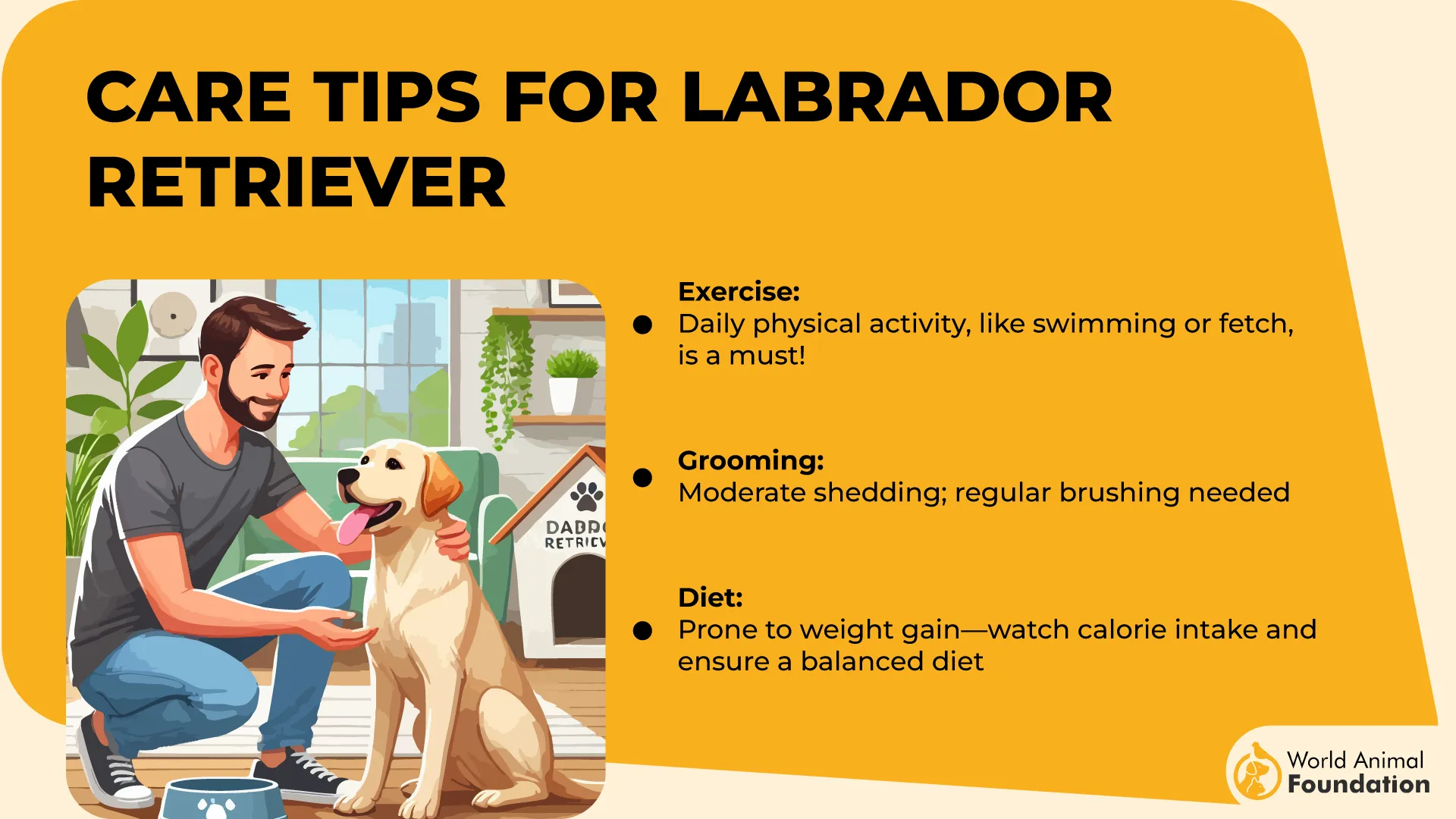
These non-aggressive and emotionally intuitive dogs are wonderful in animal-assisted therapy, but require specific training for performing therapy tasks with accuracy.
3. Cavalier King Charles Spaniel
Height: 12-13 inches | Weight: 13-18 lbs
Lifespan: 12-15 years
Temperament: Gentle, Patient, Tolerant, Happy, and Graceful with an Affectionate nature
These oldest of the toy Spaniels and lap dogs were practically bred for companionship. Hence, they make the perfect breed for providing emotional support. The Cavalier King Charles Spaniels are known for their keen intelligence and unconditional love.
Petplan states that whether you feel too lonely or depressed, are facing a difficult, painful phase in life, or are grieving a beloved, these loyal pooches will instantly provide you with their kisses and nuzzles, resulting in an improved mood and easing your anxiety.
Fun Fact:
These doe-eyed, long-eared pooches were the royal favorites of King Charles II and the famous Queen Victoria, who had a Cavalier named “Dash.”
Professional Advice:
These small dogs have velcro tendencies and cannot stay apart from their owner for a long time.
These friendly dogs like to be involved in every aspect of their owners’ lives; hence, make sure to provide them with adequate attention.
It is a Low-maintenance breed, but needs proper grooming from time to time.
4. Shih Tzu
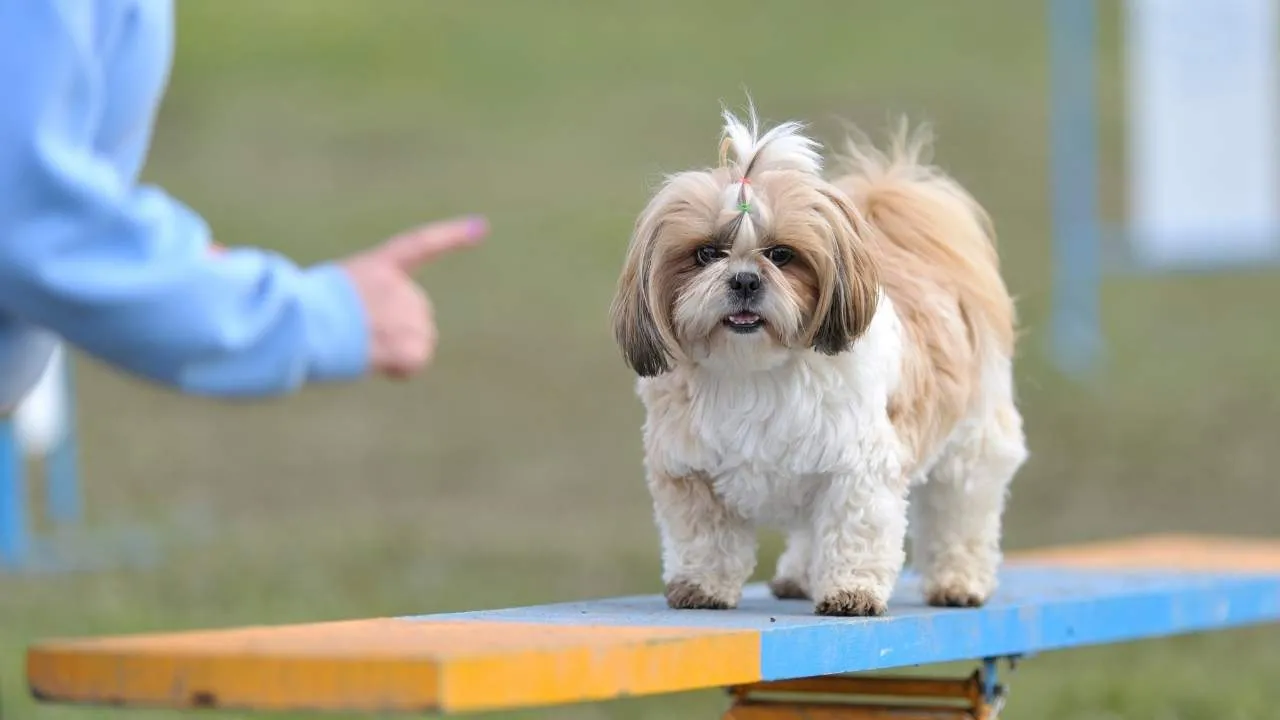
Height: 9-10.5 inches | Weight: 9-16 lbs
Lifespan: 10-18 years
Temperament: Social, Vivacious, Cheerful, Watchful, and Affectionate
Wherever the Shih Tzu roams, giggles and mischief follow. These little lion dogs are lively, affectionate, and playful pups, and if you just need some non-judgmental acceptance, a deep connection, and a lot of cuddles, the Shih Tzu is the perfect companion for you.
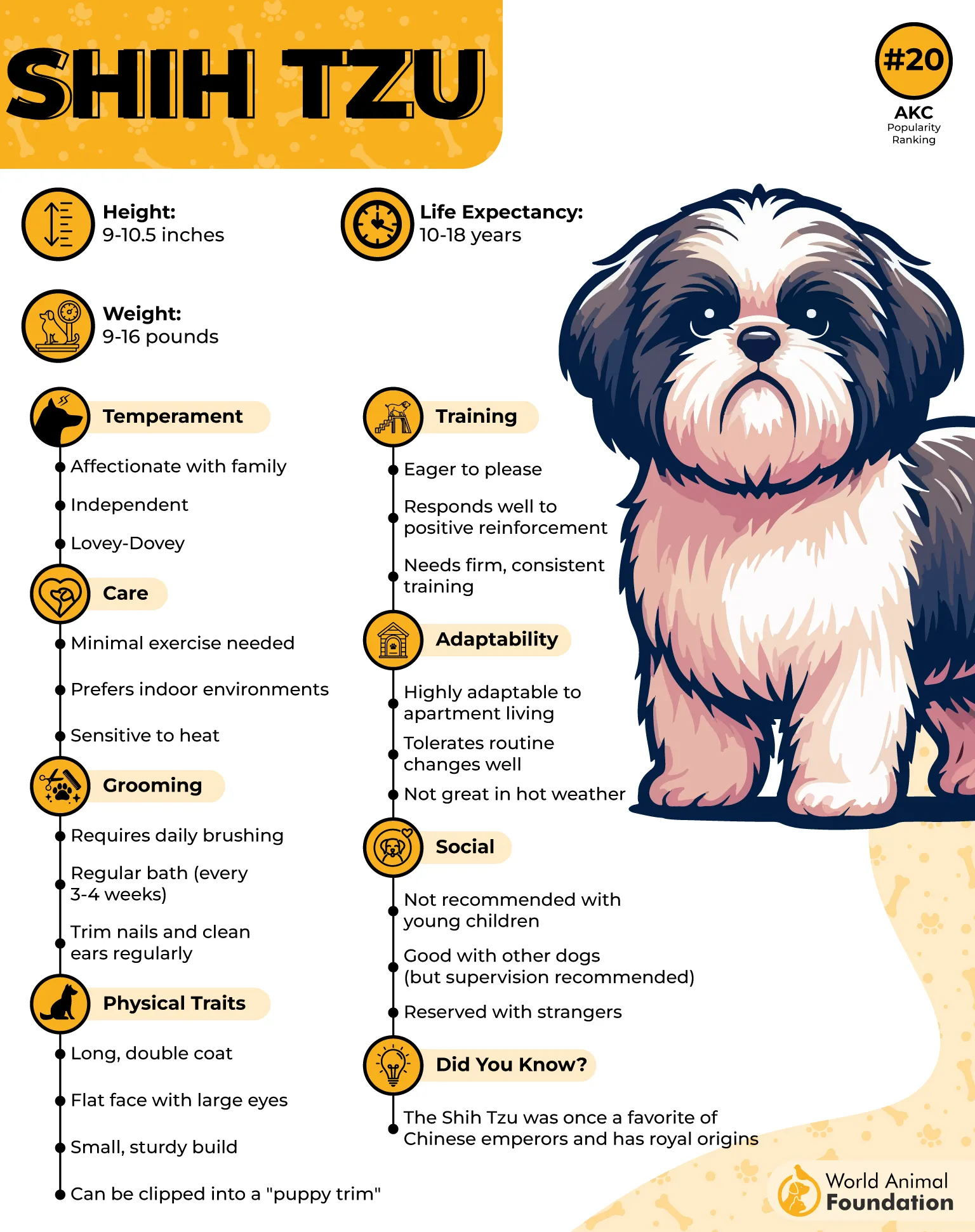
PDSA confirms these pooches are like tiny hearts covered in fur. They dramatically help to regulate emotional states in humans, making them ideal emotional support animals that provide comfort and companionship.
Fun Fact:
Shih Tzus are also called “chrysanthemum dogs” because their hairs grow on their round faces in all directions, resembling the petals surrounding a flower
Professional Advice:
These flat-faced dogs are brachycephalic. Hence, make sure not to keep them in extremely hot places.
They can exhibit a stubborn streak, which can make training challenging. Hence, try positive reinforcement and reward-based methods to make them learn.
5. Pug
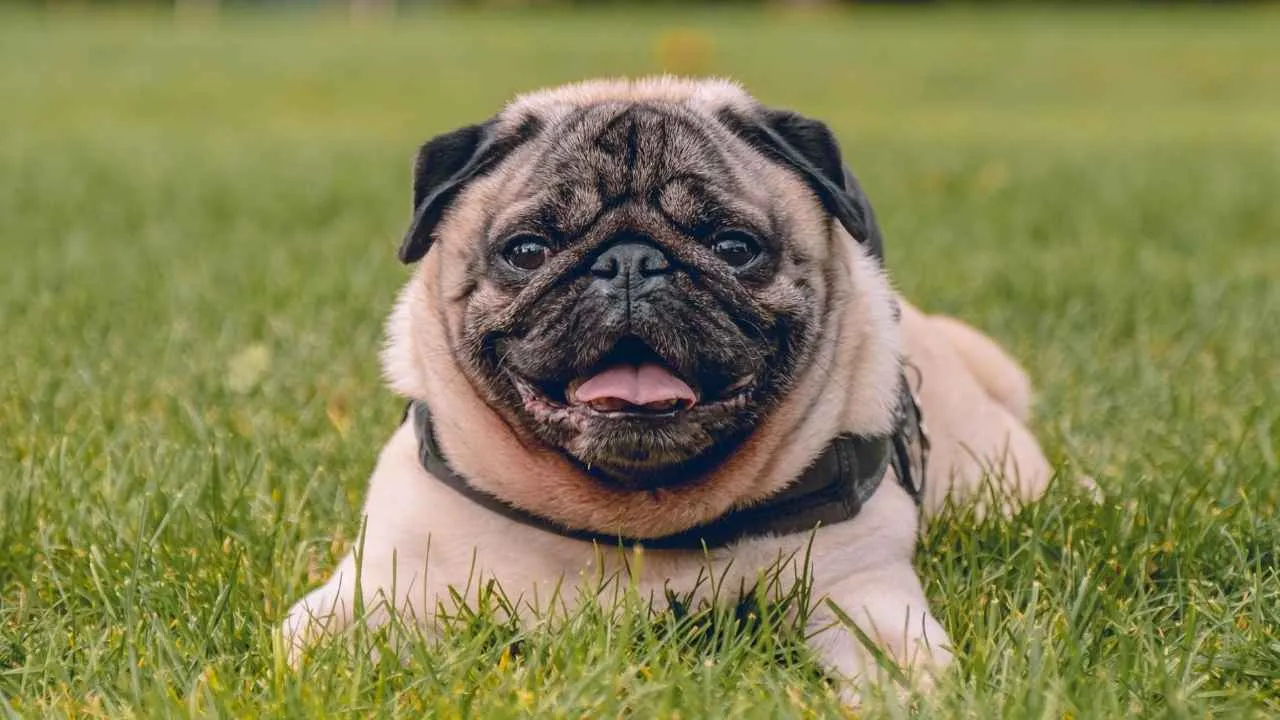
Height: 10-13 inches | Weight: 14-18 lbs
Lifespan: 13-15 years
Temperament: Clever, Stubborn, Sociable, Adaptable, Low-energy, Mischievous, and Lovable
A Pug has a large, round head, big sparkling eyes, and the iconic wrinkled brow, curly tails, and small, chubby bodies. These ancient dogs are the best therapy dog breeds because they connect with their owners emotionally on a deeper level.
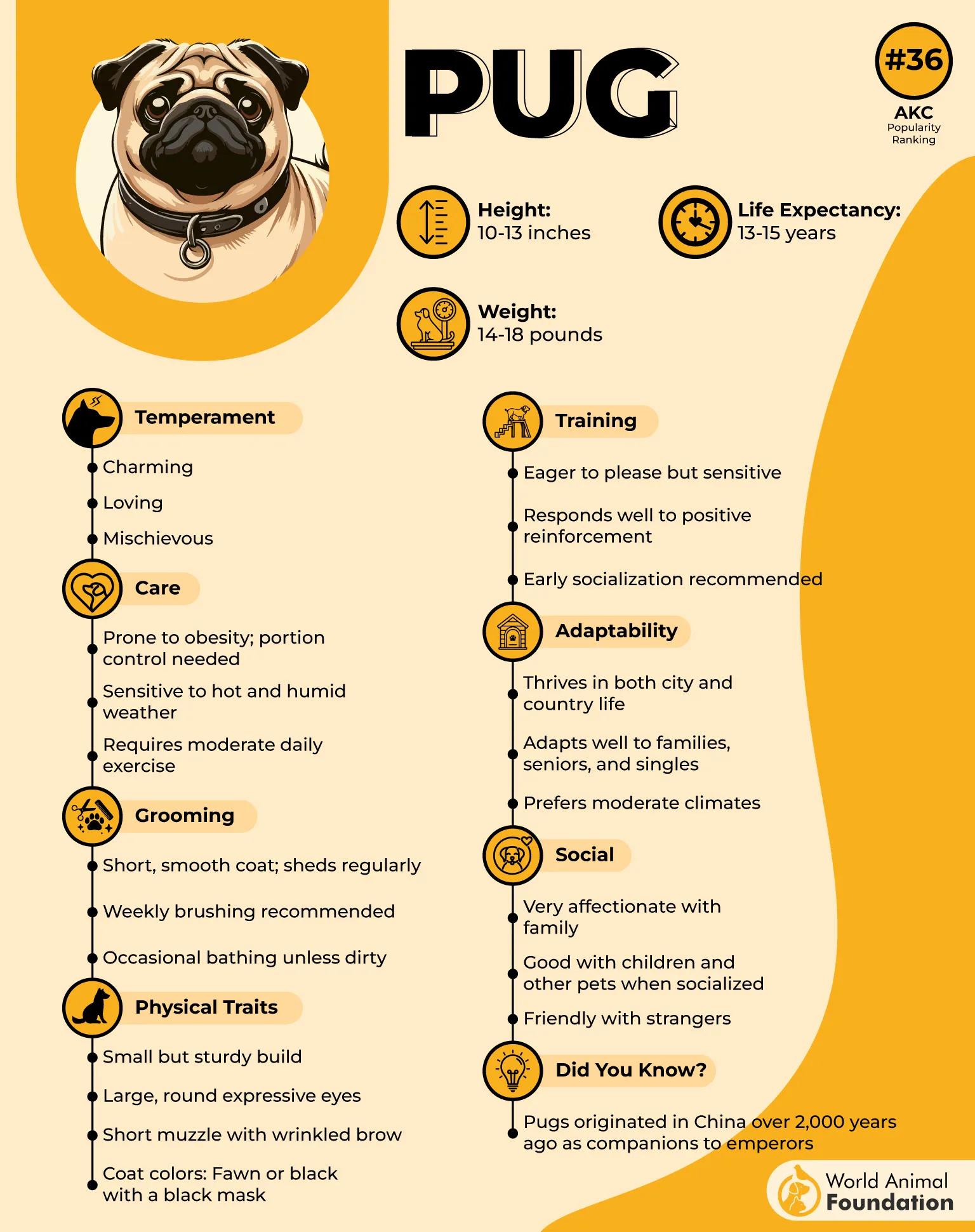
VCA Animal Hospitals states that these cute, lovable pups even make excellent service dogs and are affectionate but not overly clingy, and provide a sense of comfort and joy to individuals suffering from depression, anxiety, and ADHD.
Pugs don’t need much grooming and are ideal for therapy work because they are highly trainable, and their eagerness makes training much easier.
Fun Fact:
The Pug’s motto is the Latin phrase “multum in parvo,” a lot in little, which is an apt description for this muscular, small breed. They were the companions of Chinese emperors and the mascots of Holland’s House of Orange.
Professional Advice:
Pugs should be kept away from the heat because they are brachycephalic.
These adorable, laid-back pooches are big foodies; hence, make sure to control their portions and feed them healthy stuff.
Nudge them to go for daily walks and exercise because they are prone to obesity.
6. Beagle

Height: under 13 inches or 13-15 inches | Weight: under 20 lbs or 20-30 lbs
Lifespan: 10-15 years
Temperament: Merry, Curious, Highly Empathetic, Quick Learners, and Versatile
Beagle is the right breed for mental health, as it has a strong sense of what’s going on inside your head. These scent hounds can smell the pain and grief on you. The Beagles have an innate ability to sense and respond to human emotions and are the perfect breed for an emotional support dog.
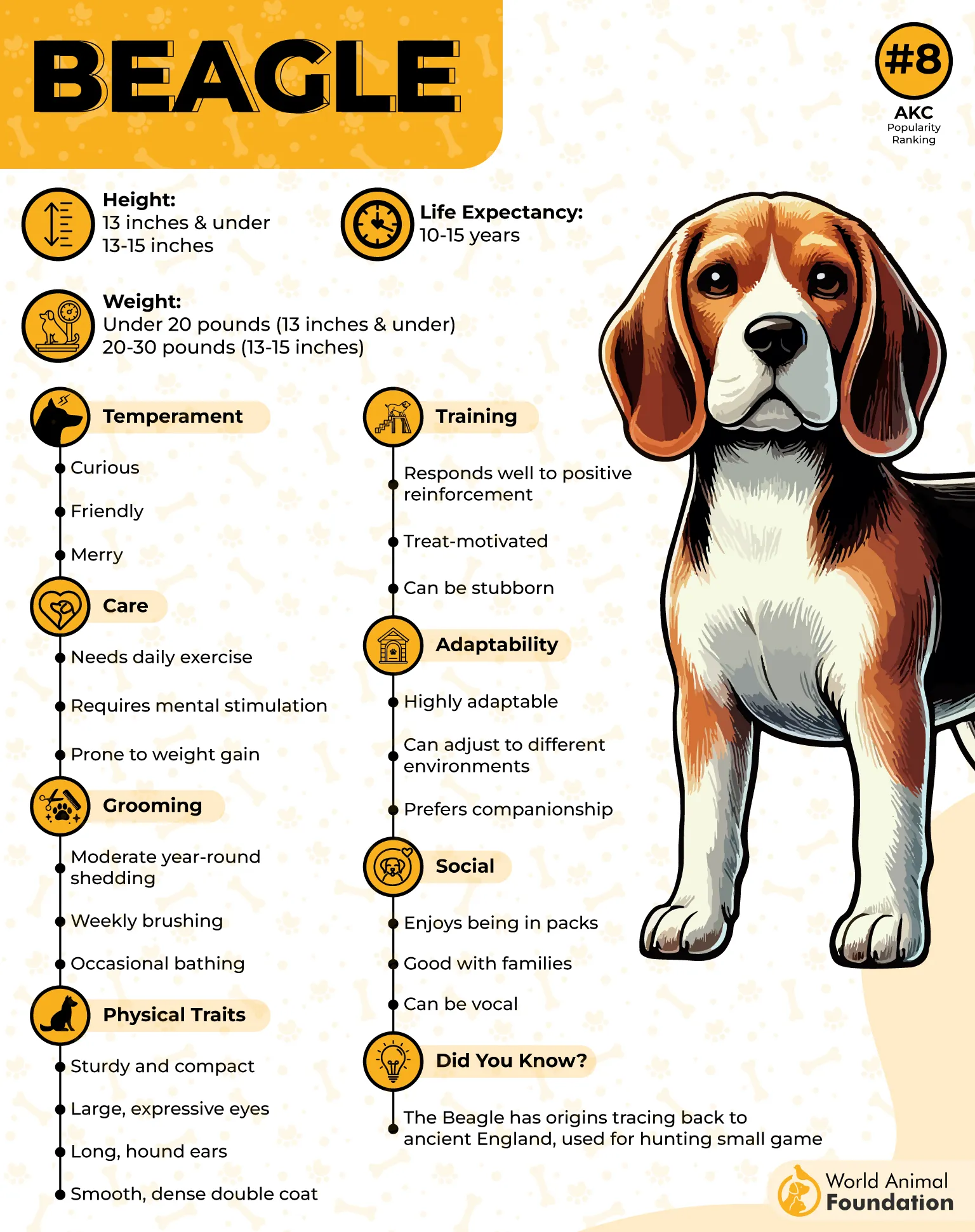
Beagles are quite adaptable, hence they also excel at mobility assistance and psychiatric support. These dogs are quite high energy; hence, provide them with interactive play sessions of fetch and hide and seek.
Fun Fact:
Orvis says these tricolored pups have 220 million scent receptors, making them one of the best tracking dogs worldwide. The famous animated character “Snoopy” is a Beagle.
Professional Advice:
These pooches hate it when you leave them alone for long periods and are prone to separation anxiety; hence, make sure to be more present for your beagle.
They thrive on human interaction and companionship; hence, socialization isn’t an option, it’s a necessity.
7. Bichon Frise
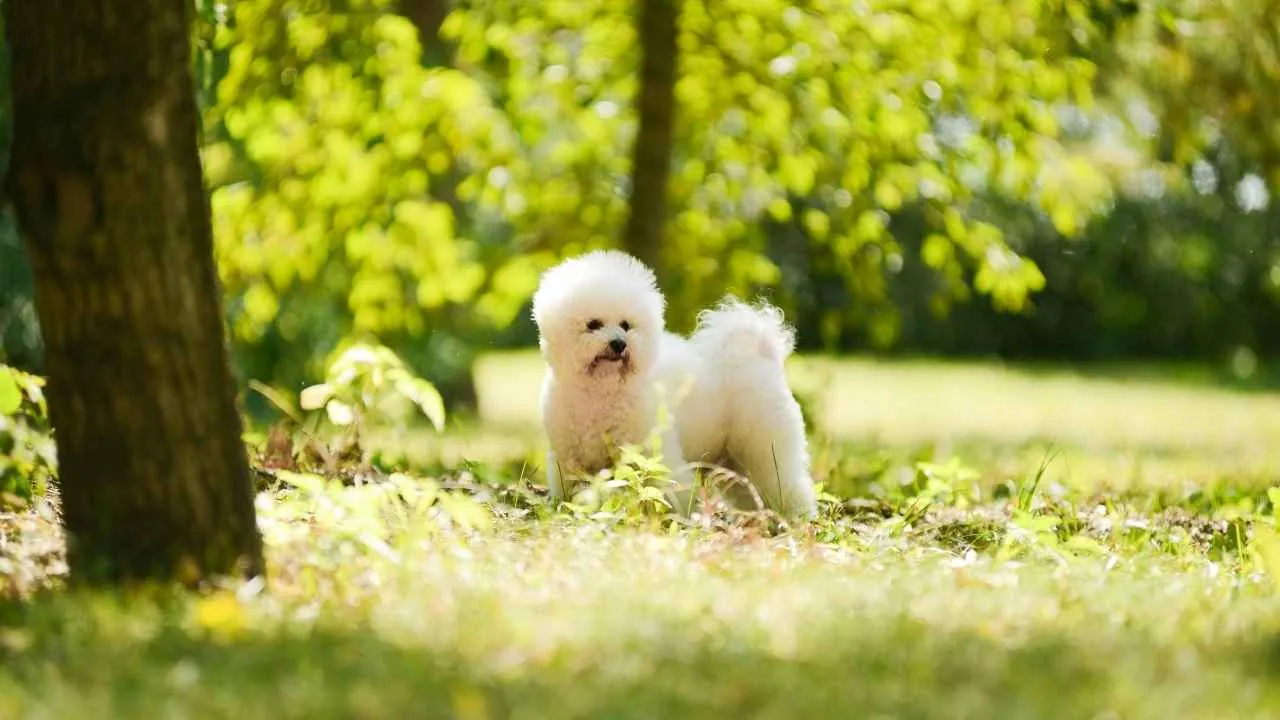
Height: 9.5-11.5 inches | Weight: 12-18 lbs
Lifespan: 14-15 years
Temperament: Charming, Intelligent, Alert, Curious, and Loving Comedian
Who would not want to adopt a peppy and fluffy cloud like a Bichon with a hypoallergenic coat? These dogs that have survived history’s ups and downs merely due to their extreme beauty and swift adaptability can teach us humans a thing or two about survival and resilience, too.
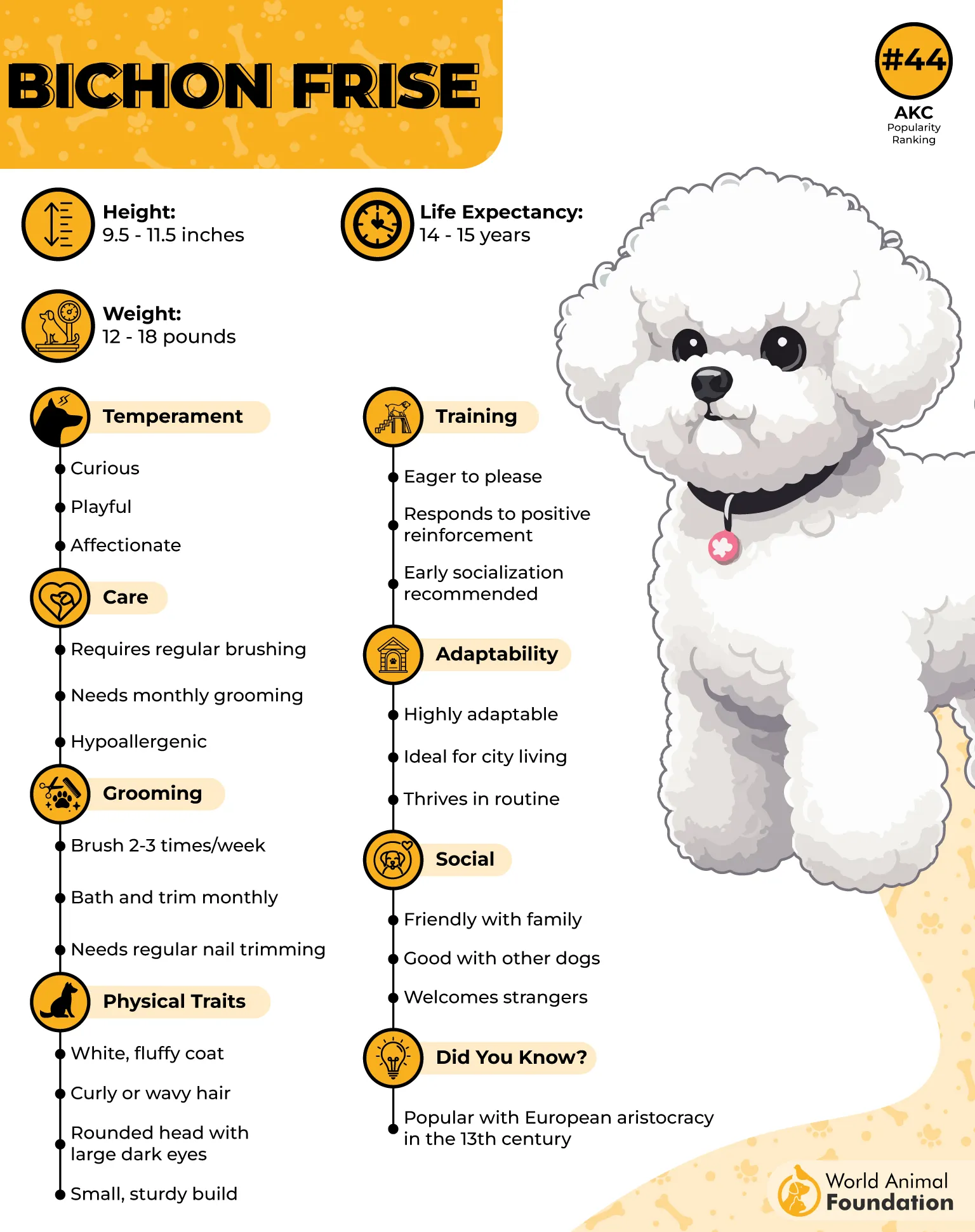
Purina says surprisingly plush and velvety to the touch, this cute puppy with its large dark eyes is irresistibly adorable. These therapy dogs draw smiles and hugs wherever they go, and are strictly adamant on spreading love, not war, in this world.
Fun Fact:
These unique hypoallergenic dogs will even perform to keep their owners entertained and have a happy-go-lucky personality, which was adored by owners. Many royals, including Francis I and Henry III, adored these dogs.
Professional Advice:
Bichons provide support and the best therapy with their gentle temperament, but need daily walks and adequate playtime to keep them springy and merry.
They are known to reduce stress, anxiety, and depression, lower blood pressure, and improve cardiovascular health. But, they also need proper nutrition and care to keep them healthy.
Conclusion
Nothing beats the comforting nuzzles and calming presence of excellent therapy dogs. Pet ownership has proven to help people living with conditions like depression, anxiety, PTSD, ADHD, and autism. Moreover, in addition to these mental health benefits, these canines are also known for increasing the lifespan of their owners.
Hence, nursing homes frequently use these pooches for therapy purposes and for providing support to folks living with severe mental health conditions. If you are also looking for therapy or assistance dogs for your beloved grandparents or friends, try these 7 breeds that are known for their predominantly friendly and gentle nature, and make great emotional support animals for the young and elderly alike.


